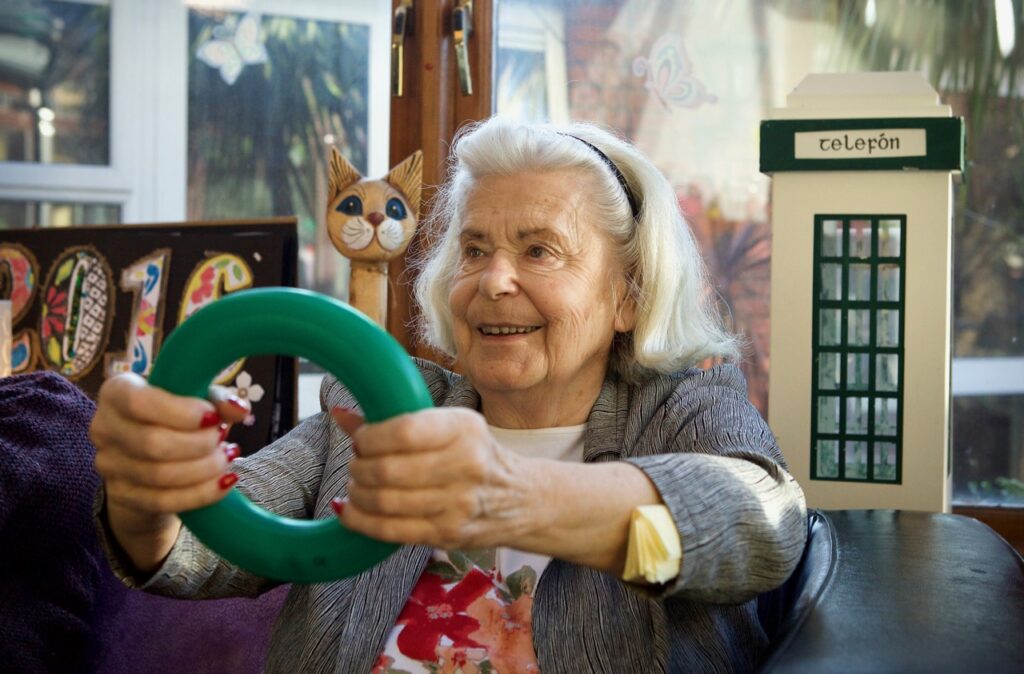Siel Bleu Ireland’s trainer, Shane Lee, gives us 10 tips for ageing well in order to have great mental and physical health. Read about the tips below and try to implement them in your everyday life for the best results!
- Move
Before thinking about a specific exercise routine, simply get up and move more. Do the things you enjoy, whether it’s walking, gardening or anything else that gets you up and moving. The couch may be the most dangerous item in the house!
- Exercise
Think of exercise as the world’s best drug to help you to retain your health and independence. Exercise helps to maintain bone density, prevent muscle loss and potentially reduce the risk of falls. There is no right or wrong exercise but maintaining strength and balance are particularly important for older adults. Why not try one of Siel Bleu’s Strength and Balance programmes?
- Include Resistance (strength) Training
Walking is great, but it may not be enough. Muscle wastage and loss of bone density (osteoporosis) may result in falls and ultimately loss of independence. You don’t need any special equipment for strength training – try using filled water bottles instead of buying weights.
- Stay Connected
Being socially isolated can damage our psychological health; as we age it’s important to have a good support network. Apart from the obvious link with depression, studies indicate there is a correlation between lack of social engagement and the risk of developing heart disease and other illnesses, so the message is: make the effort to get out and about and socialise!
- Work Your Brain
The brain will only stop learning if you stop challenging it. Like any other part of the body your brain needs stimulation. Try learning a new skill like taking up a new language. This can be just as important as the physical stimulation of exercise!
- Sleep
Don’t retire your body from routine and the restorative power of sleep! The body likes routine, so try to go to bed and get up at the same time every day. Think of sleep as your body’s chance to recharge and repair; without a full charge, it won’t run optimally.
- Nutrition
Are you still consuming the same amount of food despite being less active? Or have you lost your appetite? Whichever is the case, try to follow a balanced and varied diet that includes fresh fruit and vegetables and some protein rich food for healthy muscles and bones. Dairy, healthy oils and whole grain foods all provide essential nutrients and minerals.
- Set Goals
Setting goals can be hugely motivational. Start your day with 3 small goals, such as climbing your stairs 10 times, and set one bigger goal for the week, such as completing a walk in the local park. Goals will give you accountability and allow you to measure progress. Plus, their completion will leave you feeling good about yourself!
- Appropriate Activity
I still meet people who are too cautious to take any exercise. We must be mindful of medical advice, but don’t accept being told to quietly sit down and do nothing. There is a level of physical activity out there for everyone, whatever their age or ability – focus on what you can do, not what you cannot do.
- Manage Pain
Pain isn’t a normal part of ageing or something you should have to endure. If something isn’t right with your body, fix it. Doctors, physiotherapists and other health professionals are there to help so consult them.
***Disclaimer: The information in this post is for reference only and is not intended to be a substitute for medical expertise or advice. If you have any concerns about your own or another’s health then please contact your doctor.


